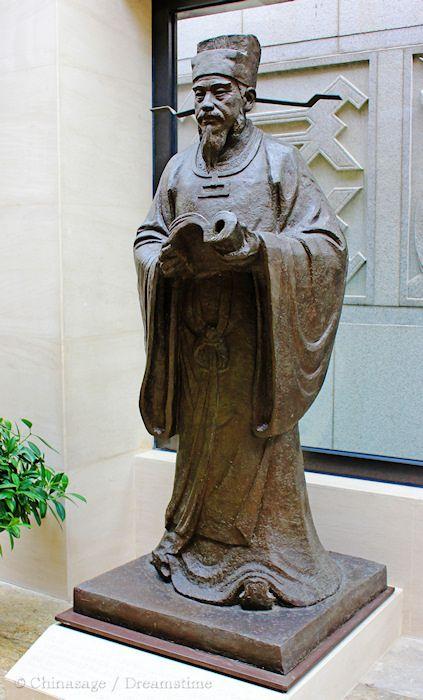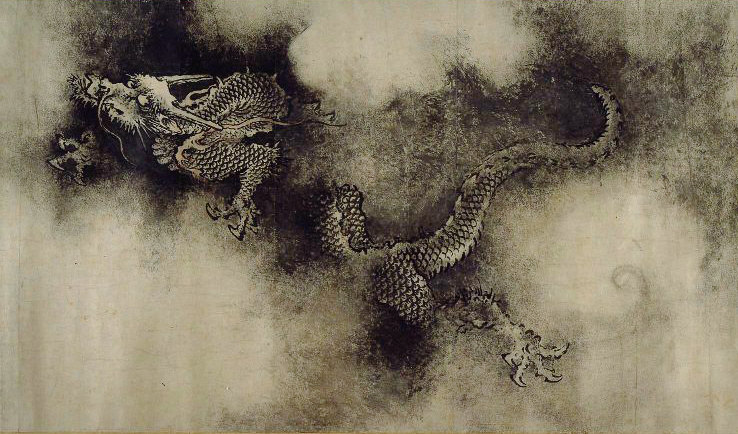Shen Kuo 1031 - 1095

Shěn Kuò 沈括 was one of the leading intellectuals of the Song dynasty. He was a polymath with knowledge of many different disciplines and spent his life noting down anything of interest that he saw. The great sinologist, Joseph Needham, describes him as ‘Perhaps the most interesting man in all Chinese scientific history’. The soubriquet the ‘Chinese Leonardo da Vinci ➚’ seems appropriate but he lived 500 years earlier than the great Italian. He is mainly known for a book that is a compendium of notes he wrote over his lifetime the ‘Dream Pool Essays’ 梦溪笔谈 Mèng xī bǐ tán published in 1086. The book is named after a landscape garden he built when it had appeared to him in a dream.
He was born near Hangzhou and was quickly recognized as a scholar and served in the government as an ambassador, a military commander and became chancellor of the Imperial Academy. He retired to a location near Zhenjiang in Jiangsu. What makes his contribution stand out is that he made careful observations of everything and offered only logical conclusions, cutting scientific inquiry free from hearsay and superstition. All modern science is built upon this careful empiricist approach ➚ to observation.
His ‘Dream Pool Essays’ are a goldmine of pioneering observations but the topics are not structured into an over-branching theory, instead they touch on a very wide range of different subjects including astronomy, mathematics, chemistry, geology, arts, music, military strategy, literature and general observations of nature. It consists of the main text followed by an appendix (补笔谈 Bǔ bǐ tán) and then a sequel (续笔谈 Xù bǐ tán). In Europe, it took 500 years before many of his discoveries were repeated. Here are a few examples of his pioneering observations of the world.
Chemistry
Shen Kuo observed the strange properties of a particularly bitter tasting stream. He noted how the water could produce copper and coat anything iron with a copper surface. We now know that the water must have been rich in copper sulfate. At the time science was dominated by the theory of the five elements. This observation ran counter to the theory where water was produced by metal (cold metal surfaces collect dew overnight) as in this case water was producing metal. Kuo maintained, like his contemporaries, that all matter was composed in different densities of the same base component - the ‘qi’.
Mathematics
He wrote of how the length of circular arcs could be calculated. He devised a system of trigonometry for a spherical surface (like the Earth) rather than the Euclidean flat plane. He considered the moves of Chinese chess and calculated how many possible moves there were and noted how the number of combinations made the numbers rapidly approach infinity.
He showed how to calculate the sum of a progression of numbers. There are hints that he understood how to sum infinite series which is the basis of mathematical integration discovered by Leibniz 700 years later. It is possible but unproven that Leibniz based his theory on Shen's work as Leibniz studied many ancient Chinese texts.
Astronomy
Shen gives the first definite description of the magnetic compass. He also describes how to use sundials to observe the passage of the sun through the sky. He was dismissive of the competence of the astronomers at the time. He made an accurate measurement of how far the apparent pole of rotation ➚ of the heavens drifts over the past few thousand years. In 1064 he recorded the fall of a meteorite. After a loud thunderclap it fell in a garden burning the fences and producing a small impact crater. After the glowing meteorite cooled off he noted that it looked like iron and had been made tear-shaped by its fiery passage through the atmosphere.
His observation of the moon's orbit led him to accurate postulate that the times of tides was primarily governed by the moon but also modified by the topology of seas and estuaries.
Optics
Like Isaac Newton ➚, who lived 650 years later, Shen was fascinated by mirrors and lenses. He experimented with a burning lens. He correctly suggested why the image projected from a pin hole is turned upside down.
Acoustics
He noted how the strings of zithers would resonate at a specific frequency.
Weather
He recorded a double rainbow in 1070 and correctly surmised that rainbows are caused by the dispersion of sunlight by suspended water droplets. He recorded how a lightning strike hit a house melting the metal objects but left other materials barely scorched.

Geology
When he saw evidence of fossil sea creatures high up in mountains he did not suggest that they were deposited in some great flood but instead by gradual processes. He had noted the erosion and deposition of river silts and suggested that present day geomorphology was the result of these processes over very long time periods. It was 700 years later that James Hutton ➚ came up with the same hypothesis.
He was the first to make three dimensional relief maps using sawdust and wheat flour glue. The Emperor was so impressed that he ordered similar models to be made of frontier regions. When he discovered that burning petroleum produce very fine soot, which is suitable for making ink, he was concerned that the demand for wood for traditional ink manufacturing would denude the mountains of their trees - a very early concern about sustainable development ➚.
It is a sad that Shen Kuo's work was not followed up by others. There was no work of similar quality anywhere else in the world at this time. As in the case of poetry promising developments in the Song dynasty were blighted by the controversies over the reforms of Wang Anshi and then the loss of northern China to the Jin dynasty.